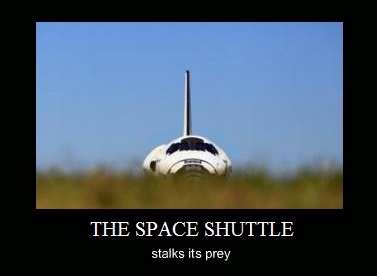I mentioned yesterday that Geoff Notkin of the Meteorite Men gave me a copy of his book, which now holds the distinction of being the tome in my personal library with quite utterly the longest title ever:

But, accurate, certainly. And so full of passion! There is something so compelling about someone who is excited about how they make their living... those amazing people who bound out of bed and cannot wait to do what they do. Seeking bits of an alien world is a unique mission, as evidenced by Geoff's eloquent introduction:
"Meteorites are the most remarkable things on our planet, and they are not even from this planet. They are pieces of extra-terrestrial rock and metal that have fallen onto the surface of the earth. Meteorites are at tangible link with an existence outside of the world we know and are, literally, visitors from outer space… within them are clues to the origin of suns, planets, asteroids, and possibly, even life itself. They are valued by enthusiasts because a space rock is, perhaps, the most intriguing of all collectibles."
If he wanted to light a fire under people to make them want to go hunt meteorite themselves, this book absolutely succeeds!

Then I look at pictures like this and realize
I'm quite cozy at home watching on TV, thanks.
I'm quite cozy at home watching on TV, thanks.
Well, even if I never canvas a frozen Russian steppe with a metal detector, thanks to Geoff I can now intelligently articulate regmaglypts, chondrules, ablation, bolide, and strewnfields. Can you tell the difference between a fall and a find? How about the difference between a crater and an impact pit?
About halfway through the book was the intriguing sentence, "Nothing gets Meteorite Men co-host Steve Arnold more charged up that a good fireball chase!" Alrighty then. What's a fireball?
Well you can find that out, and more, in these helpful and educational pages – but don't think it's all fun and games. One must consider, as Notkin highlights from experience, the pitfalls of permits vs. trespassing, local laws for space rock hunting – and let's pretend for a moment that field equipment isn't exactly cheap.

Backhoe rentals. Also not cheap.
Another reality of the meteorite hunting life is all the "meteowrongs" one is apt to dig up in serious pursuits, and Geoff describes a hilarious list of objects he's unearthed over the years, including unexploded bombs and missiles! So my sofa is looking comfier all the time.
But hey, for those of you more apt to frolic in the wild with shovels and snappy multi-pocketed utility vests, remember:
"Most meteorites spent millions of years traveling through the vacuum of space at temperatures approaching absolute zero. When meteorites land on our planet, they are immediately exposed to oxygen and moisture, and the process of terrestrialization begins. Iron starts to oxidize, the decay of radioactive isotopes commences, and delicate fusion crust will begin to corrode. The sooner a fresh fall is delivered into the hands of a researcher, the more valuable it is to science. There is a real urgency to recover new falls and get them to labs as quickly as possible."

You haven't lived until you've dug holes in every continent
So are there any catches to living the exciting life of a meteorite man? A few, says Geoff. Seems he has a growing pile of boxes crowding into his life, filled with rocks. The senders want to know if they have found meteorites? But wait, I said, puzzled; the book clearly indicates how to identify meteorites in the laboratory and in the field.
Geoff laughed. He knows. He wrote it. But even with the advised magnet tests, estimations of weight and density, and describing varying means of visual identification based on features, it turns out that he increased rather than lessened the numbers of people sending him rocks in boxes!
Punchline: read his book, or the Meteorite Identification Tips on his Aerolite web page, you won't need to spend money to mail a rock to anyone. You'll have all the information you need to identify true meteorites!
Human nature: People want to send a rock to the guys on TV, so they can tell their friends about it.

Someday, I want to look this happy standing inside an Impact Crater
What's next for the Meteorite Men? Well, I'm personally hoping to see an ANTARCTICA ROAD TRIP! Catch Meteorite Men on the Science Channel Monday evenings. If you miss the show at its premiere time, it's also run twice more for you night owls, and can also be found On Demand in many areas that offer DirecTV.
All photographs from © Aerolite Meteorites LLC, gratefully re-used here with permission of the Meteorite Men. In order, they were taken in Australia, Kansas, Poland and Chile.


































































